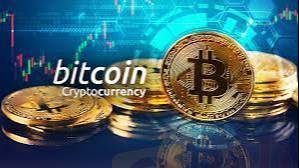
2025-02-06 19:51
業界The Role of Education in Economic Development
#firstdealofthenewyearastylz
Education plays a vital role in economic development, serving as a key driver of economic growth, poverty reduction, and improved living standards. Here are some ways education contributes to economic development:
Human Capital Development
1. *Increased productivity*: Educated workers are more productive, efficient, and innovative.
2. *Skilled workforce*: Education provides the skills and knowledge required for various industries and occupations.
3. *Entrepreneurship*: Education fosters entrepreneurship, leading to the creation of new businesses and jobs.
Economic Growth
1. *Higher earning potential*: Educated individuals earn higher incomes, contributing to increased economic output.
2. *Increased economic mobility*: Education helps individuals move up the economic ladder, reducing poverty and income inequality.
3. *GDP growth*: Education is positively correlated with GDP growth, as educated workers contribute to increased productivity and innovation.
Poverty Reduction
1. *Reduced poverty rates*: Education is a key factor in reducing poverty rates, as educated individuals are more likely to secure better-paying jobs.
2. *Improved living standards*: Education leads to improved living standards, as educated individuals are more likely to have access to better healthcare, housing, and nutrition.
Social Benefits
1. *Improved health outcomes*: Education is linked to improved health outcomes, as educated individuals are more likely to make informed health decisions.
2. *Reduced crime rates*: Education is associated with reduced crime rates, as educated individuals are less likely to engage in criminal activity.
3. *Increased civic engagement*: Education fosters civic engagement, leading to increased participation in democratic processes and community development.
Challenges and Solutions
1. *Access to education*: Ensure equal access to quality education for all, regardless of socioeconomic background or location.
2. *Quality of education*: Improve the quality of education by investing in teacher training, infrastructure, and curriculum development.
3. *Relevance of education*: Align education with labor market needs, ensuring that graduates possess the skills required by employers.
In conclusion, education is a critical driver of economic development, contributing to increased productivity, economic growth, poverty reduction, and improved living standards. Investing in education is essential for building a skilled and competitive workforce, promoting economic growth, and reducing poverty and inequality.
いいね 0

bolaji1913
브로커
人気の話題
業界
米国株式や日経などのクロスボーダー ETF は大量に高値で償還され
業界
包括的なリスク管理計画を策定する
業界
高度なテクノロジーとテクニカル分析を活用する
業界
📢2025年1月9日11:00の通貨ペア
業界
危険】:米国でVarna Tradeを訪問しましたが、オフィスは見つかりませんでした‼ 詳細は下の画
業界
👀#WikiFX 「先週、日本人ユーザーが最も検索されたFX会社が発表されました!」
市場分類

会社ナビ

エキスポ

IB

募集

EA

業界

相場

指標
The Role of Education in Economic Development
 香港 | 2025-02-06 19:51
香港 | 2025-02-06 19:51
#firstdealofthenewyearastylz
Education plays a vital role in economic development, serving as a key driver of economic growth, poverty reduction, and improved living standards. Here are some ways education contributes to economic development:
Human Capital Development
1. *Increased productivity*: Educated workers are more productive, efficient, and innovative.
2. *Skilled workforce*: Education provides the skills and knowledge required for various industries and occupations.
3. *Entrepreneurship*: Education fosters entrepreneurship, leading to the creation of new businesses and jobs.
Economic Growth
1. *Higher earning potential*: Educated individuals earn higher incomes, contributing to increased economic output.
2. *Increased economic mobility*: Education helps individuals move up the economic ladder, reducing poverty and income inequality.
3. *GDP growth*: Education is positively correlated with GDP growth, as educated workers contribute to increased productivity and innovation.
Poverty Reduction
1. *Reduced poverty rates*: Education is a key factor in reducing poverty rates, as educated individuals are more likely to secure better-paying jobs.
2. *Improved living standards*: Education leads to improved living standards, as educated individuals are more likely to have access to better healthcare, housing, and nutrition.
Social Benefits
1. *Improved health outcomes*: Education is linked to improved health outcomes, as educated individuals are more likely to make informed health decisions.
2. *Reduced crime rates*: Education is associated with reduced crime rates, as educated individuals are less likely to engage in criminal activity.
3. *Increased civic engagement*: Education fosters civic engagement, leading to increased participation in democratic processes and community development.
Challenges and Solutions
1. *Access to education*: Ensure equal access to quality education for all, regardless of socioeconomic background or location.
2. *Quality of education*: Improve the quality of education by investing in teacher training, infrastructure, and curriculum development.
3. *Relevance of education*: Align education with labor market needs, ensuring that graduates possess the skills required by employers.
In conclusion, education is a critical driver of economic development, contributing to increased productivity, economic growth, poverty reduction, and improved living standards. Investing in education is essential for building a skilled and competitive workforce, promoting economic growth, and reducing poverty and inequality.
いいね 0
私もコメントします
質問します
0コメント件数

誰もまだコメントしていません、すぐにコメントします

質問します
誰もまだコメントしていません、すぐにコメントします